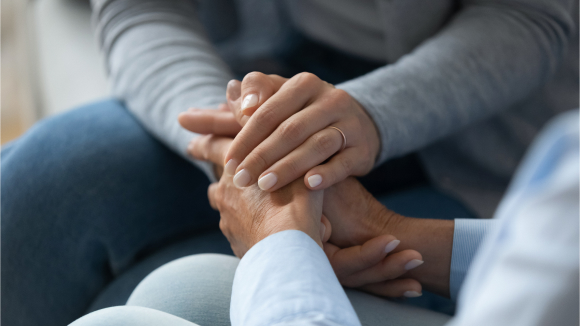
The physical effects of lymphedema or vascular disease are commonly recognized, but it’s too often forgotten that not all of the challenges related to these conditions are physical. Equally difficult are the impacts they can have on emotional well-being.
Facing a new diagnosis and the changes that often accompany treatment -- lack of mobility or modifications to lifestyle and daily routine -- can leave you feeling isolated or frustrated. If not properly addressed, these feelings can compound over time.
It isn’t just the person with the condition themselves who experience this, either. This process can be similarly hard on family, friends, and caregivers. However, those communal feelings of empathy can actually hold the key to improving mental health.
Social Connectedness and its Benefits
Connectedness and a feeling of community can have huge benefits. Knowing you have a solid group of people who care about your well-being is one of the most effective ways to alleviate the feelings of helplessness or isolation that so many face as they adjust to their diagnosis.
These kinds of supportive relationships can even be a factor in treatment effectiveness. They can motivate individuals to adhere to treatment plans, make positive lifestyle changes, and stay committed to their overall health. This is especially true if they’re able to connect with other people with lymphedema or vascular disease who can share valuable information and symptom management strategies.
Ways To Foster Social Connectedness
Join Support Groups
Don’t forget you aren’t alone. There are many communities and resources both online and locally to better connect with people who have been through the same changes. The Lymphatic Education & Research Network (LE&RN) is a good place to start.
Communicate Openly
It’s very common for people to think that sharing their struggles with friends and loved ones might make them a burden. Moving past this notion, and confiding in the people you trust, is one important thing you can do for your mental and emotional wellbeing.
Stay Active
For both physical and mental wellness, a stroll around the neighborhood or even just going out to get your mail are great options. These make for the perfect environments to foster a sense of community, while also giving your body the benefits of exercise. Always check with your doctor before starting an exercise program.
Educate Your Support Network
It’s important to ensure that the friends and family you rely on understand the challenges you face and how they can help. Try sharing educational materials with them or attending medical appointments together so they learn as you do.
Seek Professional Help
Sometimes, it can seem like nothing is enough to get yourself out of a slump. When these feelings start to come up for you or your loved ones, turn to someone trained to help you understand and navigate them.
It’s important to remember that you aren’t defined by your condition and that you don’t have to face it alone. Connecting with others is one of many powerful ways to continue to lead a happy and fulfilling life.
We know it’s not always easy or convenient to make and nurture these kinds of social connections, but their ability to support emotional health, motivation, knowledge sharing and more can’t be overstated. If you're currently living with lymphedema or vascular disease, or if you're a caregiver or family member, we encourage you to reach out to others, seek support, and embrace the healing power of connection.









